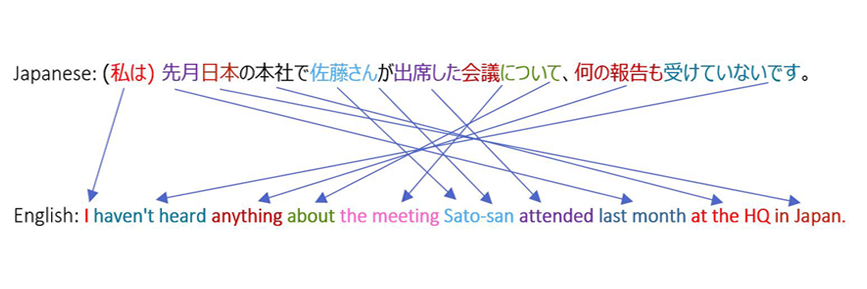If there is one question that comes up in every JCO session for Non-Japanese it would have to be this one.
“Why do so many Japanese struggle in English?”
In this article, we will look into a few reasons that might help explain this observation.
Not a need:
Japan, being an island, has been isolated from the rest of the world for hundreds of years. With very limited immigration and a very homogenous culture, there was, and still is, little need to learn a foreign language. Most Japanese people can go about their lives without having to speak any English.
Learning to memorize, not communicate:
Beyond the lack of great need to use English, the way that English is taught in Japanese schools does not encourage communication or conversation. Rather, the emphasis is on studying grammar, not talking or making yourself understood. Students learn vocabulary and simple sentences, but don’t learn to use and speak the language.
Even in Job interviews, only the applicant´s TOEIC test score might be reviewed without ever checking someone´s actual language skill level.
Saving face and not making mistakes:
Japanese people are known to be rather shy and find it very embarrassing to make mistakes in front of others. This perfectionist tendency makes it difficult for Japanese to dare to speak without being sure everything they are saying is correct.
English is a foreign language after all:
Probably the most important factor is the language itself. Japanese is a very different language compared to English and other Indo-European languages. This makes learning English a real challenge for many Japanese. As an example, take a look at the sentence structure below:

As the sentence shows the word order in Japanese is quite different to that of English. In English word order usually is as follows: [Subject] – [Verb] – [Object]. In Japanese, however, the usual order is often: [Subject] – [Object] – [Verb]. This also illustrates perfectly why in Japanese, you have to wait to hear the end of the sentence to completely understand what is being said.
Japanese is also a highly contextual language, so subjects or topics can be left out. For example, in the sentence above, the subject ‘I’ (私は) can be left out. Only the context can help you understand who or what is being talked about.
So in other words, learning English for Japanese is the same as learning Japanese for any native speaker English. Very difficult…
(This blog article was written by JCO intern Emma Vermander)
Don’t miss our next post in which we will share the most important techniques to ensure smooth communication with Japanese colleagues and partners.
To learn more about this and other related topics, why not attend a JCO session!







